22nd Orphan Drugs and Rare Diseases Global Congress 2024 Americas
Addressing Scientific and Regulatory Challenges to Advance New Treatments for Rare Diseases
Boston, MA, USA
Thursday 14th - Friday 15th November 2024
Facilitate Live is again proud to present our Orphan Drugs and Rare Diseases Global Congress 2024 Americas. It’s the 22nd in the series of our Flagship tri-annual Orphan Drugs & Rare Diseases event. This congress will provide you with a comprehensive overview of the critical issues shaping the future of Orphan Drugs.
The COVID-19 Pandemic has impacted the lives of just about everyone, patients receiving continuous treatment and care included. The Rare Disease community is already experiencing considerable challenges in achieving early and detailed diagnosis and having access to care and life-saving treatment, to chronic, highly complex, progressive, and severely disabling nature of their diseases, which generate specific care needs. Undoubtedly, during this crisis, the rare diseases community is experiencing unprecedented overall disruption even more…
According to a report by Fortune Business Insights, the Global Orphan Drugs Market size will emerge from the COVID-19 crisis at a moderate growth during the forecast period of 2020 to 2026. The global orphan drugs market size is projected to reach USD 340.84 billion by the end of 2027. As stated, the market was worth USD 151.00 billion in 2019 and will exhibit a CAGR of 10.5% during the forecast period, 2020-2027.
The current regulatory climate increasing the number of regulatory approvals, expanding numbers of successful clinical trials related to these drugs, tremendous investments in R & D, and the interest and existence of several large-scale manufacturers, will create opportunities and contribute exponentially to the overall market growth.
The two-day Congress will provide an interactive, cutting edge, and comprehensive discussion and networking format led by key experts with intimate knowledge in the industry. Gain practical strategies and best practices on challenges, innovations, technologies, and concepts surrounding orphan drugs and rare diseases.
We look forward to meeting you at the Congress!
Sincerely yours,
Jocelyn Raguindin
Conference Director
Paradigm Global Events / Facilitate Live
- Day 1 14/11/2024
- Day 2 15/11/2024
Conference Agenda
Day 1: Thursday - 14th November 2024
MACRO OUTLOOK AND CURRENT TRENDS
- Impact of new innovations to patients and caregivers
What difference do these recent innovations have made to their lives?
What must be done to accelerate innovations and broaden access at the same time?
What challenges still remain to increased equity for people living with a rare disease and their families?
Panelist: Julie Breneiser, Executive Director, Gorlin Syndrome Alliance
Julie Breneiser, Executive Director, Gorlin Syndrome Alliance
 Kristin Smedley, President, Curing Retinal Blindness Foundation
Kristin Smedley, President, Curing Retinal Blindness Foundation
- Siblings are an often-overlooked member of the rare disease ecosystem but play a valuable role and have unique insights into rare disease.
- Siblings can, and should, be seen as caregivers in rare disease as they often play a pivotal role in activities of daily life within the home
- The phrase “unaffected siblings” is inaccurate for while a sibling may not have the rare disease, they are still affected in many aspects of their life
- How can we generate more evidence to support the important role that siblings play in caregiving?
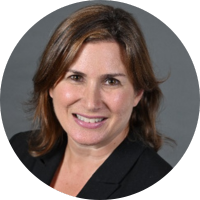 Joslyn Crowe, Vice President, International Niemann-Pick Disease Alliance (INPDA)
Joslyn Crowe, Vice President, International Niemann-Pick Disease Alliance (INPDA)
- What innovative changes are coming in research, clinical development, manufacturing, registrational paths, and commercial models that will impact the rare disease community
- Insights and recommendations for those preparing for their go-to-market
- Stakeholders collaboration to continue fulfilling unmet needs?
- What R&D strategies can be implemented to accelerate the market access for orphan drugs?
- Challenges in bringing orphan drugs to patients after approval
Panelists:
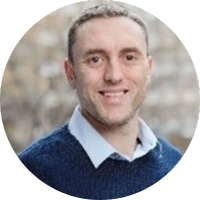 Giacomo Chiesi, Head of Global Rare Diseases, Chiesi
Giacomo Chiesi, Head of Global Rare Diseases, Chiesi
 Monique Mulkern, Head of Global Launch Excellence, Alexion, AstraZeneca Rare Disease
Monique Mulkern, Head of Global Launch Excellence, Alexion, AstraZeneca Rare Disease
- Sickle cell serves as a great example of a neglected orphan disease
- Historical treatment developments and current landscape
- Cultural and patient group concerns regarding progress
- Voxeletor in Europe -progress today
- Innovative models for collecting RWE in SCD
- ‘Big’ Pharma vs SMEs in the development landscape-which is best?
 Nigel Nicholls, General Manager Northern European Cluster, Egetis Therapeutics AB
Nigel Nicholls, General Manager Northern European Cluster, Egetis Therapeutics AB
- How an EAP aligns with orphan drug development and commercialization plans
- Ethical considerations for EAPs in the Orphan Drug environment
- The role of Real World Data and how it can integrate with EAPs
- EAPs – outside traditional markets
- Practical guide to initiating a successful EAP
- Finding, engaging, and genetically screening patients outside of traditional academic sites can improve the patient
experience, decrease time to diagnosis, and accelerate trial enrollment for hard to find rare disease patients. - Attendees will gain insights gleaned from our most impactful genetic screening programs, implement genetic testing programs and working collaboratively with patient advocacy groups.
- Success in rare disease clinical trial enrollment and retention necessitates expanded access, more inclusive outreach strategies, and technology-driven solutions.
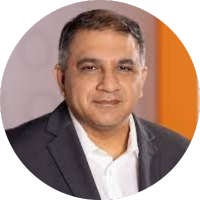 Mohamed H. Ladha, President & GM, North America, RECORDATI RARE DISEASES
Mohamed H. Ladha, President & GM, North America, RECORDATI RARE DISEASES
- 30 years pioneering Rare disease development and commercialization.
- Impact of orphan drug legislation on innovation and solidification of the biotech industry
- Lessons for new modalities
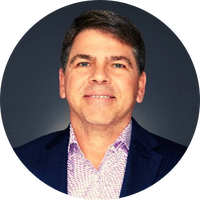 Rogerio Vivaldi, President, CEO, Sigilon Therapeutics, an Eli Lilly and Company
Rogerio Vivaldi, President, CEO, Sigilon Therapeutics, an Eli Lilly and Company
DISCOVERY & INNOVATION
- Overcoming hurdles to getting advanced therapies to more rare diseases patients around the world
- Improving clinical development by new-age clinical trial design and recruitment
- An effective framework for developing the delivery system for the next generation of medicine
- Unconventional payment models to ensure innovative treatment can be accessed by rare disease patients
- Technologies that improve scalability, decrease the cost of goods, enhance overall safety, or increase durability
- Making manufacturing and commercialization viable
Moderator: Alison Schecter, Chief Executive Officer, Molecules to Medicine Advisory Group
Alison Schecter, Chief Executive Officer, Molecules to Medicine Advisory Group
Panellist: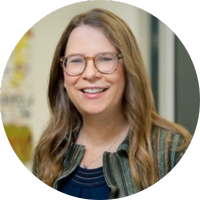 Caroline Kurtz, Chief Development Officer, Synlogic
Caroline Kurtz, Chief Development Officer, Synlogic
- Potential Treatment Option(s) and Overall Needs in Orphan Indications Must be Considered.
- Seriousness and Quality-of-life of the Orphan Condition Must be Considered
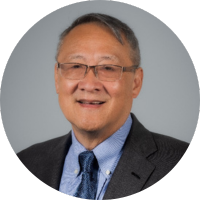 David Young, President, Research & Development, Processa Pharmaceuticals, Inc
David Young, President, Research & Development, Processa Pharmaceuticals, Inc
- Overview of Synthetic Biotics approach to treatment of metabolic diseases
- PKU background and unmet need
- SYNB1934v1 design
- Phase 2 results
- Design of global Phase 3 study of Synpheny-3
- Summary and forward look
 Caroline Kurtz, Chief Development Officer, Synlogic
Caroline Kurtz, Chief Development Officer, Synlogic
- Definition of Orphan and Ultra-orphan Indications in Oncology
- Challenges of Development: The Regulatory and Developmental Environment
- Role of Big Pharma: Recent Trends
- Prospective Strategies to Overcome the Challenges
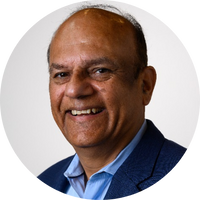 Sanjeev Luther, President & CEO, Cornerstone Pharmaceuticals
Sanjeev Luther, President & CEO, Cornerstone Pharmaceuticals
- In vivo phenotypic screens can identify therapeutic targets underlying common pathological problems in neurological and rare disorders
- KCC2 potentiating therapies for neurological and rare disorders involving excitation/inhibition imbalance and neuronal circuit disinhibition in the CNS
- Orphan drug indication prioritization and commercialization: Portfolio of KCC2 therapies to match target-product-profile (TPP) and modality to patient needs
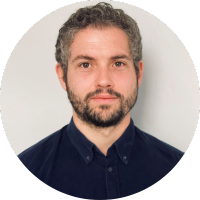 Shane Hegarty, Chief Scientific Officer & Co-Founder, AXONIS Therapeutics, Inc.
Shane Hegarty, Chief Scientific Officer & Co-Founder, AXONIS Therapeutics, Inc.
- Neurodevelopmental disorders (NDDs) include a broad class of disorders that affect brain development during childhood
- Many NDDs are monogenic rare disorders with a known genetic cause and afford the unique opportunity to correct the genetic defect by gene augmentation, upregulation, silencing or editing the causal mutation
- Success in drug development for these debilitating pediatric disorders will require innovative thinking in terms of platform- izing both technologies as well as the commonalities in the disease symptoms.
 Smitha Jagadish, Vice President, Head of Rare Diseases and New Modalities, BIAL
Smitha Jagadish, Vice President, Head of Rare Diseases and New Modalities, BIAL
The importance of “I Don’t Know”
- Throwing out the playbook
- What not the Why
- Truth & Tears
Scientific Method for all
- Observation from all angles
- Where the answers truly lay
- Open and accessible
- Path less taken
- The shared concern
The post that changed lives
- Support from all sides
- Right input from the right places at the right time
- Overwhelming despair to share
- Motivation through collaboratio
- Changes to the status quo
 Patricia Weltin, CEO/Founder, Beyond the Diagnosis
Patricia Weltin, CEO/Founder, Beyond the Diagnosis
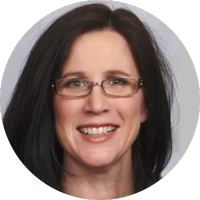 Annette Maughan, CEO/Co-Founder, KBG Foundation
Annette Maughan, CEO/Co-Founder, KBG Foundation
- Due to the Inflation Reduction Act of 2022 (IRA) (and anticipation of efforts around S.1264, the SMART Act) the future of innovation of the orphan drug pipeline will be significantly damaged for current and future rare disease patients.
- The IRA significantly damages and erodes the incentives for innovators to invest and develop rare therapies. During implementation, CMS determined to start the negotiation clock based on the first orphan indication, not when the innovator loses legal protections from negotiation.
- In 2021, RAAP conducted a study that modeled the impact of provisions that included exploration of increased costs for participating in Medicare Part D, the costs of punitive provisions to force acceptance of government price setting, and the erosion of incentives to pursue indications in smaller populations.
- Our study found the impact of these provisions were both inflationary and costly on a product-by-product basis in Medicare Part D of between 400 and 800 percent. Such increases in costs, coupled with price controls and incentives that make rare disease investments even less certain, have combined to have a devastating effect on rare disease innovation.
- Given the approach of the upcoming election season, and anticipated efforts to frame the SMART Act as completion of the IRA pricing scheme, the time to act is now to protect the orphan drug pipeline and rare disease patients.
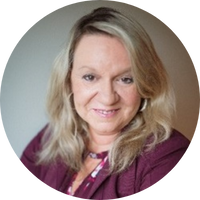 Tara J. Britt, Founder and President, Rare Disease Innovations Institute, Inc.
Tara J. Britt, Founder and President, Rare Disease Innovations Institute, Inc. Michael Eging, Founder, Executive Director, Rare Access Action Project (RAAP)
Michael Eging, Founder, Executive Director, Rare Access Action Project (RAAP)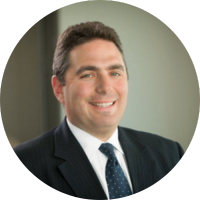 Jayson Slotnik, Principal and Founding Partner, Health Policy Strategies
Jayson Slotnik, Principal and Founding Partner, Health Policy Strategies
— END OF DAY 1 —
Conference Agenda
Day 2: Friday - 15th November 2024
ACCESS & COLLABORATION
- The foundational value of building collaboration through trust, respect, transparency, and empathy
- Not all advocacy organizations are alike: assessing the landscape
- Real-world examples of innovative digital solutions driving collaboration among multiple stakeholders
- Value of partnering with advocacy organizations to create innovative patient-driven solutions
Moderator:
 Julie Yu, Chief Program Officer, Amicus Therapeutics
Julie Yu, Chief Program Officer, Amicus Therapeutics
Panellist: Kristin Smedley, President, Curing Retinal Blindness Foundation
Kristin Smedley, President, Curing Retinal Blindness Foundation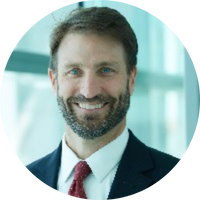 Alan J. Balch, Chief Executive Officer, Patient Advocate Foundation
Alan J. Balch, Chief Executive Officer, Patient Advocate Foundation
- Shifting Perspectives: Explore the transformative power of looking through a different lens and redefining how we perceive disability. Discover how this shift not only opens new doors for individuals with blindness but also redefines the landscape of innovation and inclusion within industry.
- Incorporating Diversity in Clinical Trials: Uncover the untapped potential of incorporating people with blindness and disabilities within clinical trial design teams. Learn how their unique insights and experiences bring invaluable depth to the development process, enriching study outcomes and fostering a more comprehensive understanding of patient needs.
- Empowering Trials Through Inclusion: Delve into the multifaceted benefits of enrolling patients that are blind in clinical trials. Explore how their participation enhances trial authenticity, strengthens patient engagement, and ultimately paves the way for groundbreaking treatments that cater to the diverse needs of the rare disease community and beyond
 Kristin Smedley, President, Curing Retinal Blindness Foundation
Kristin Smedley, President, Curing Retinal Blindness Foundation
- Building community networks to reach underserved and underrepresented communities
- The importance of trust building in improving diagnosis and clinical trial participation
- The power of meeting patients where there are
 Tricha Shivas, Chief Strategy Officer, Foundation for Sarcoidosis Research
Tricha Shivas, Chief Strategy Officer, Foundation for Sarcoidosis Research
- We are focused on putting rare disease patients at the center of everything we do and are committed to letting the patient voice shape who we are
- We have the opportunity to remain close to the patients, caregivers and their providers, always learning from them and responding to their needs.
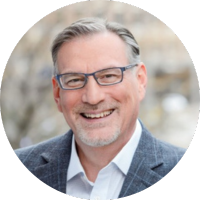 Stuart Siedman, Global Head Patient Advocacy, Rare Diseases, Chiesi
Stuart Siedman, Global Head Patient Advocacy, Rare Diseases, Chiesi
- Creating patient-clinician relationships that create a sense of ease and trust
- Addressing issues on practical challenges
- Multi-disciplinary approach and patient centered support to improve accessibility and further advances which will impact the next generation aiding patients of the future
- Obtaining an accurate diagnosis in rare disease remains a formidable challenge
- Learn how PTC partnered with ThinkGenetic AI to find at-risk patients in medical records
- Hear about opportunities and challenges to expand the technology to other rare conditions
- Patients with a rare condition could be hiding in plain sight, based on their symptoms.
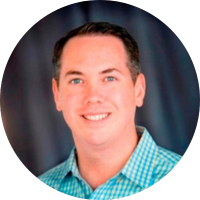 Ryan Miller, Director, Clinical Science and Diagnostics, PTC Therapeutics
Ryan Miller, Director, Clinical Science and Diagnostics, PTC Therapeutics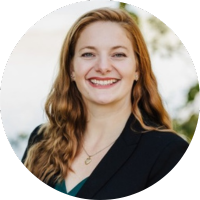 Ruth O’Keefe, Chief Executive Officer, ThinkGenetic, Inc.
Ruth O’Keefe, Chief Executive Officer, ThinkGenetic, Inc.
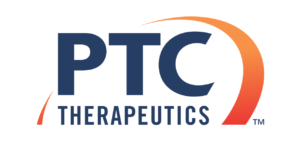

Jodi M. Wolff, Vice President, Patient Advocacy & Engagement, Rejuvenate Bio
- Opportunities and challenges for Rare Disease policy shaping in Emerging Markets
- Medical affairs leadership in elevating the voice of patients to improve access outcomes
- Significance of early stakeholder conversations & identification of evidence needs – embracing patient reported outcome measures
- Building access specific competencies in emerging Market Medical Affairs
- Pivotal role of Early Access Programs
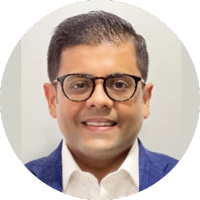 Siddharth Jain, Medical Director –LSDs & HAE, Global Medical Affairs, Takeda
Siddharth Jain, Medical Director –LSDs & HAE, Global Medical Affairs, Takeda
- Discuss rare disease organization strategy and resource management
- Discuss multi-tiered approach to discovery
- Discuss how to manage through pitfalls and setbacks
Samuel L. Seward, Jr. MD, Professor and Chair, Department of Medicine, Mount Sinai
- Mental Health is part of total Health
- The incidence of mental health disorders is significantly higher in individuals with a rare disease, compared to the general population.
- Remove the stigma concerning Mental Health and asking for help through constant conversation.
- Coping and Awareness of Mental Health in the Rare Disease Community
- Rare Disease organizations and Pharmaceutical companies should make Mental Health a priority
- Who and where to ask for help for Mental Health?
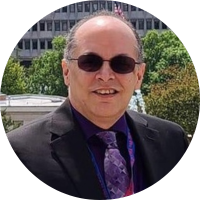 Frank Rivera, Co-Founder/President, Stronger Than Sarcoidosis
Frank Rivera, Co-Founder/President, Stronger Than Sarcoidosis
 Emily Parks, Founder, POP!
Emily Parks, Founder, POP!
Jeremy Griffin, Executive Director, New York City Hemophilia Chapter
- In rare disease, patients look ‘upstream’ with hope for development of new treatments and access to trials and ’downstream’
for better, faster diagnoses and access to treatments. No other disease category faces the same sorts of challenges all along the
continuum. Recent market conditions have halted development of a number of promising potential therapies, and new policies,
coverage decisions, financial pressures and other factors have generated additional gaps, delays and difficulties in access to
newly approved medicines. We’ll explore new approaches that are emerging from discovery to treatment in response to these
challenges.
 Craig Martin, President, Chief Engagement Officer, Rithm Health
Craig Martin, President, Chief Engagement Officer, Rithm Health
- Rare disease programs have historically leveraged creative methods to deal with difficulties inherent in orphan disorders
- The industry is evolving to address new roles in sustainability, pricing legislation, and multi-stakeholder management in addition to the patient
- Partnerships can make rare disease programs more successful in meeting and surpassing new industry standards
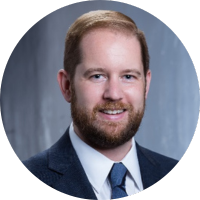 Andrew Leger, Head of US Business Development, ferrer
Andrew Leger, Head of US Business Development, ferrer- Breaking down barriers for access
- Strengthening health systems around the world and accelerating pathways to diagnosis
- Stakeholders to address the rare diseases’ ecosystem gaps to collaboratively build a sustainable roadmap for better health and a brighter future for the patients suffering from rare diseases.
- Challenges and opportunities in creating sustainable healthcare for all.
 Giacomo Chiesi, Head of Global Rare Diseases, Chiesi
Giacomo Chiesi, Head of Global Rare Diseases, Chiesi
— END OF CONFERENCE —
